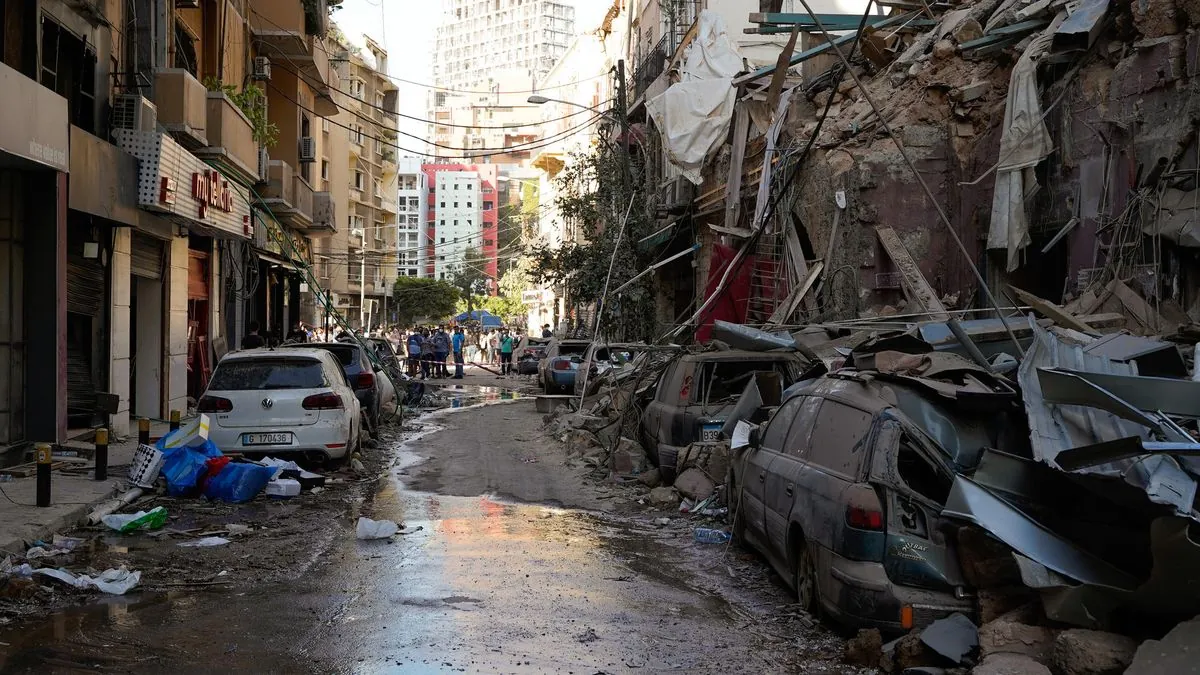In a series of events that have heightened tensions across the Middle East, Lebanon has experienced two consecutive days of deadly explosions involving electronic devices. The incidents, which occurred approximately one year ago, resulted in at least 32 fatalities and over 3,000 injuries, sending shockwaves through the region.
The sophisticated nature of the attacks, involving the simultaneous detonation of pagers, walkie-talkies, and other communication devices, has led many to suspect the involvement of Israel's Mossad intelligence agency. Established in 1949, Mossad has a history of conducting covert operations abroad. However, Israeli authorities have refrained from commenting on their potential involvement in these incidents.
Hasan Nasrallah, who has been at the helm of Hezbollah since 1992, was expected to address the situation and outline the group's response to the attacks. Hezbollah, founded in 1982 during the Lebanese Civil War, has been a significant political and military force in Lebanon for decades.
The explosions have had far-reaching consequences:
- Beirut's international airport implemented a ban on passengers carrying pagers and walkie-talkies.
- The Lebanese army continued to detonate suspicious devices across the country.
- Hospitals were overwhelmed with injured individuals, many suffering severe injuries to eyes, hands, and abdominal areas.
These events have further strained the already tense relationship between Israel and Lebanon, two nations that have no formal diplomatic relations. The Israel-Lebanon border, known as the Blue Line, has been a flashpoint since its establishment in 2000.
The international community has expressed concern over the potential for escalation. Egyptian Foreign Minister Badr Abdelatty warned of the risk of an "all-out war" that could devastate the region. Lebanon, already grappling with a severe economic crisis since 2019 and still recovering from the 2020 Beirut port explosion (one of the largest non-nuclear explosions in history), is particularly vulnerable to further instability.
The United Nations Interim Force in Lebanon (UNIFIL), present since 1978, faces new challenges in maintaining peace along the border. The situation has led to significant displacement, with tens of thousands of Israelis forced from their northern homes and over 113,000 Lebanese displaced from the south.
As the region awaits Hezbollah's response, international efforts to broker a cease-fire between Israel and Hamas continue. However, these negotiations are complicated by various factors, including new demands from Hamas and alleged obstruction by Israeli Prime Minister Benjamin Netanyahu.
The events in Lebanon serve as a stark reminder of the fragile peace in the Middle East and the potential for localized incidents to spark wider conflicts. As the situation unfolds, the international community watches closely, hoping for de-escalation in a region that has seen its share of protracted conflicts.
"We will continue our military operations against Israel to support Gaza, but these are separate from the difficult reckoning that the criminal enemy must await for its massacre on Tuesday."
